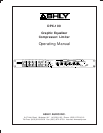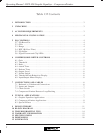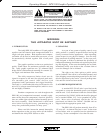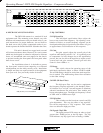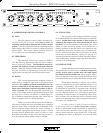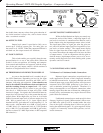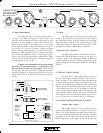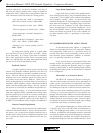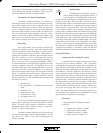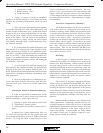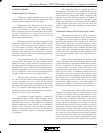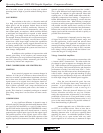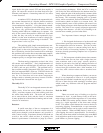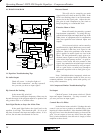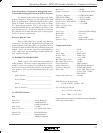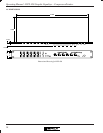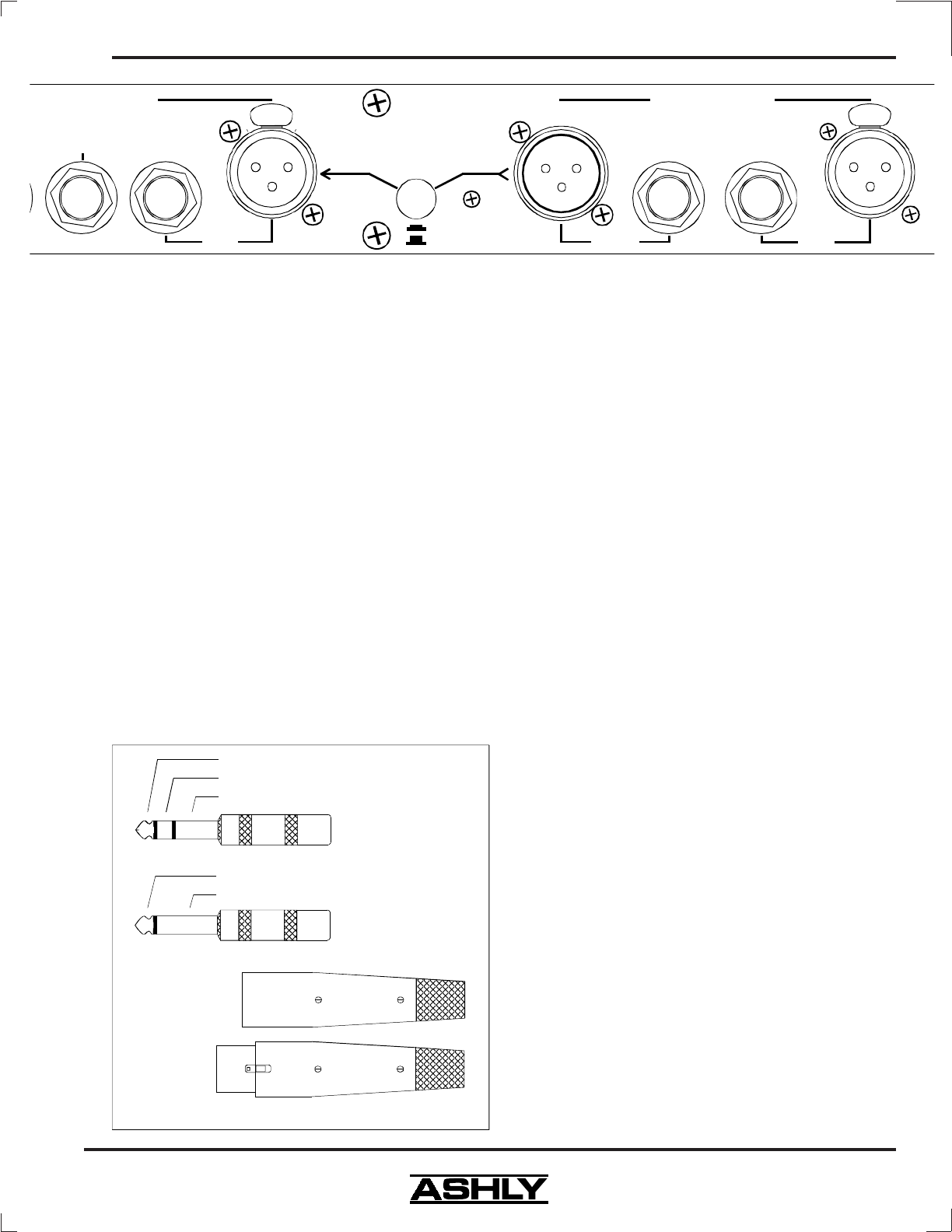
7
Operating Manual - DPX-100 Graphic Equalizer - Compressor/Limiter
7.2 Inputs and Outputs
The DPX-100 uses two different audio connec-
tor types. 1/4" TRS (tip-ring-sleeve) phone jacks, and
three pin XLR connectors will allow interfacing to most
professional audio products. Ashly TRS balanced con-
nections use the tip as (+) and the ring as (-) signal, with
sleeve used for ground. Ashly XLR connectors use pin 2
(+) and pin 3 (-) with pin 1 ground. Inputs are 20KΩ
active balanced using precision 1% metal film resistors,
outputs are 200Ω "pseudo-balanced", which means they
have balanced impedance with a single-ended signal
source, and can be wired balanced or unbalanced. When
possible, we recommend balanced connections between
all components in your system.
If inputs are used unbalanced, the signal should
be on the (+) connection and the (-) connection must be
tied to ground, or signal loss will result. While a mono
phone plug used as an unbalanced connection will auto-
matically ground the (-) ring of the jack, XLR's will not
automatically do this, so attention must be given to proper
wiring.
7.3 Chain
The chain button on the back panel allows the
output of the equalizer to be fed directly to the input of
the compressor/limiter, with no external cable required.
When the chain switch is in, the input connectors to the
compressor/limiter are removed from the circuit, while
the graphic equalizer outputs remain functional.
7.4 Detector Loop - Ducking
The DPX-100 compressor/limiter has a TRS In-
sert DETECTOR PATCH point which can be used as a
"ducking" input, or in conjunction with an equalizer to
produce frequency-sensitive limiting. Various uses of the
detector patch are discussed under TYPICAL APPLICA-
TIONS.
8. TYPICAL APPLICATIONS
By itself, the 15 band graphic EQ is useful for
general tone control, feedback control, and room reso-
nance correction. The compressor/limiter provides many
solutions where dynamic signal level processing is re-
quired. The combination of graphic EQ and compressor/
limiter allows for additional applications, such as a full
range speaker processor, 70 volt distributed system pro-
cessor, mixing console channel insert, and frequency sen-
sitive limiting, to name a few. In most cases, the DPX-100
should be the last device before the power amp or cross-
over, or right before a recording device or transmitter.
8.1 GRAPHIC EQUALIZER APPLICATIONS
General Tone Control
The graphic equalizer is a very useful device for
general tone shaping because it is intuitive and easy to
adjust. The visual reference provided by the slider posi-
tion gives an approximate idea of the frequency response
generated, with the lower frequencies on the left and
higher frequencies on the right. To use the power of an
t
ector Return/Ducking Input
Mono Plug For Ducking)
ING = Detector Send
Input
Detector
m
pressor/Limiter Graphic Equalizer
Output
Input
In
Out
Chain
PUSH
PUSH
Audio Connector Types
Tip (+)
Ring (-)
Sleeve (Gnd)
Stereo Phone Plug
used for balanced
2 = (+)
3 = (-)
1 = (gnd)
XLR pins are
numbered
on the
connector
insert.
XLR Male
XLR Female
Tip (+)
Sleeve (Gnd)
Mono Phone Plug
used for unbalanced



